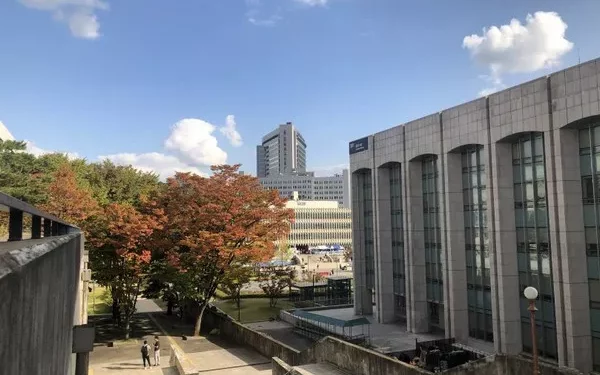KARACHI: Shiraz Hassan had two tickets for Pakistan’s World Cup opener against the Netherlands in Hyderabad.
He had high hopes of travelling to India and seeing Babar Azam’s men in action at the Rajiv Gandhi Cricket Stadium, on their first tour across the border since 2016.
Instead, like many of his compatriots – fans and journalists alike – who are waiting for Indian visas, Shiraz watched the match on television as Pakistan got off to a winning start on Friday.
It’s been an agonising, agonising wait for a response from the Indian High Commission, which is itself awaiting instructions from the Indian Home Ministry, and Shiraz is in danger of missing Pakistan’s second match of the tournament against Sri Lanka on Tuesday.
Unless, of course, something dramatic happens on Monday and he’s able to arrange a flight in time.
“The worst part,” Shiraz told Dawn on Sunday, “is that there is no refund policy for no-shows due to visa issues.
Shiraz’s friend Zeeshan also has tickets for the Sri Lanka match and is also resigned to his fate. “I don’t see any chance of getting to the game, so it’s a loss,” he told Dawn on Sunday.
But both Islamabad residents are still hopeful that the visa issue will be resolved in time for the other matches for which they have tickets.
Shiraz has tickets for Pakistan’s match against New Zealand in Bangalore on November 4, while Zeeshan is hoping to attend the team’s clash with Afghanistan in Chennai on October 23.
“Something should happen by then,” added Zeeshan, who said he was disheartened by the lack of pressure on hosts India to grant visas to Pakistani fans and journalists.
It’s not just those in Pakistan who are waiting. Overseas Pakistanis with foreign passports have also had to wait.
That’s the case with Israr Haider, who lives in Bradford. He and his wife have been attending the World Cup since 2007 and posted a video on social media asking the Indian government to grant them visas.
“Just because my place of birth on my British passport is Rawalpindi, I have been told by the Indian consulate in Bradford that it will take at least six weeks to get my visa,” Israr, who plans to buy tickets for the matches once he reaches India, told Dawn on Sunday. “That’s the time they need to do background checks.”
Pakistani fans with Canadian passports face a different conundrum, as India has severed diplomatic ties with the North American country.
However, many fans have been disappointed by the tepid response from Pakistan’s Foreign Office on the visa issue.
Hoping that the issue would be resolved, the ministry said that “India should not mix sports with politics”.
Sadly, however, cricket has been the biggest casualty of the strained political relationship between India and Pakistan.
And it’s affecting those whose bread and butter comes from covering the game.
Many accredited journalists Dawn spoke to did not want to be quoted on the record for fear of jeopardising their chances of travelling to India – albeit at a later stage of the World Cup.
But they said they expected more from the Pakistan Cricket Board and the game’s global governing body, the International Cricket Council.
“The ICC just sends out the usual statement that ‘every effort is being made’, but we don’t see any results,” said a Karachi-based reporter.
“India have an obligation to welcome Pakistani fans and journalists, but they’re not doing it. If this was the FIFA World Cup or the Olympics, would this be happening?” the reporter asked.
World football’s governing body FIFA and the International Olympic Committee, the organisers of the Olympic Games, have measures in place to allow journalists and fans easy access to their events.
At the 2018 FIFA World Cup, hosts Russia announced visa-free entry for fans with tickets. Journalists were issued visas on the spot at Russian consular offices. Qatar implemented similar plans at last year’s World Cup.
“It just goes to show that India can do whatever it wants to sideline a country and the ICC will just watch,” said another reporter from Karachi who has covered several World Cups.
At this stage, most reporters are relying on hearsay, with rumours circulating that 15 of the 50 accredited journalists from Pakistan have been granted visas ahead of the much-anticipated India-Pakistan clash on 14 October, with permits for the others to follow in due course.
“Indian High Commission officials have been quite responsive in the past, but at the moment they’re not even picking up our calls,” said an Islamabad-based reporter.
The PCB has said it is “continuing to raise concerns with the relevant authorities” by “reminding the ICC of its obligations and the members’ agreement regarding the issuance of visas to fans and journalists”, but many feel that’s not enough.
In an interview with Geo News on Saturday, former PCB chief Ehsan Mani said it was time for the board to “stand up and show leadership”.
“If Pakistani fans and journalists aren’t being given Indian visas, then they [PCB] should recall the team before Pakistan play India,” said Mani, a former ICC president.
“Under these circumstances, where a no-go area has been created for Pakistani spectators and journalists, there is no justification for the Pakistan cricket team to play in the World Cup.”
The Pakistan team had to change their travel plans due to the non-issuance of visas, finally securing them barely 48 hours before they were due to depart for their first tour of India since the 2016 T20 World Cup.
And fans are still clinging on to the hope that they will be able to see some of Pakistan’s campaign in India.
“I’m really hoping that we’ll be able to go to India,” said Israr. “Otherwise, it would paint a really bleak picture for the hosts of the World Cup, because they will be holding Pakistan matches without Pakistan fans.”




















